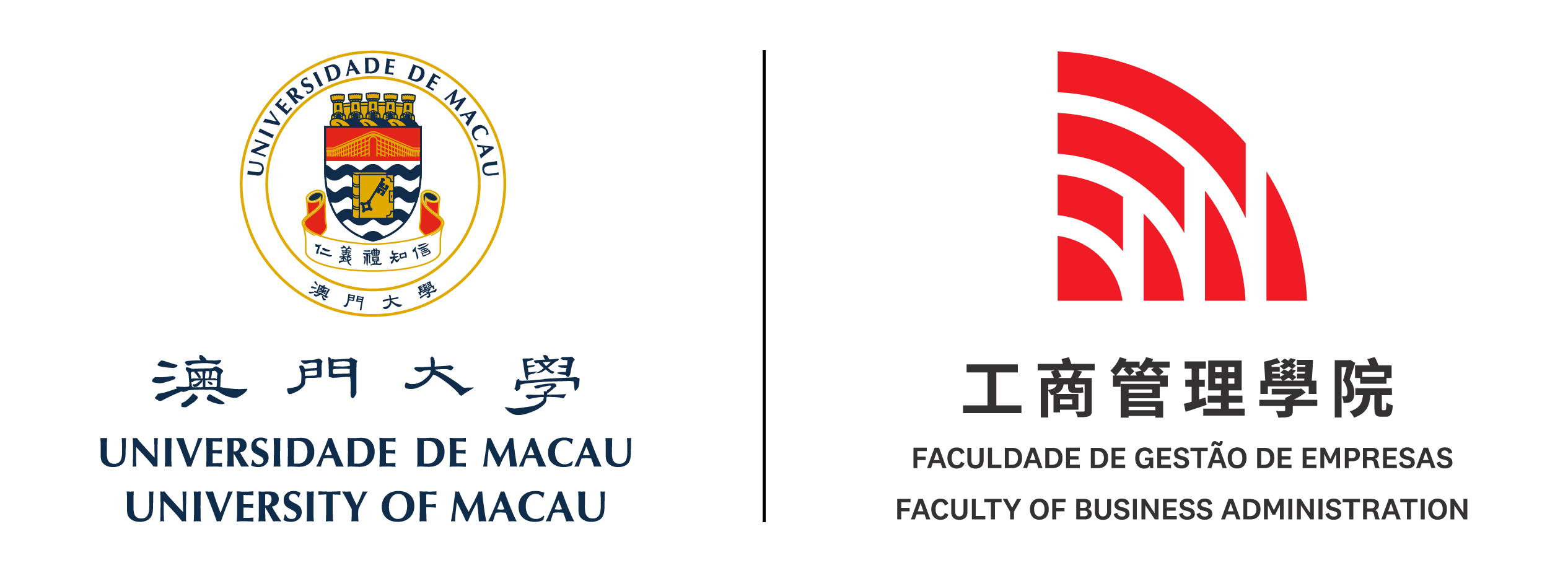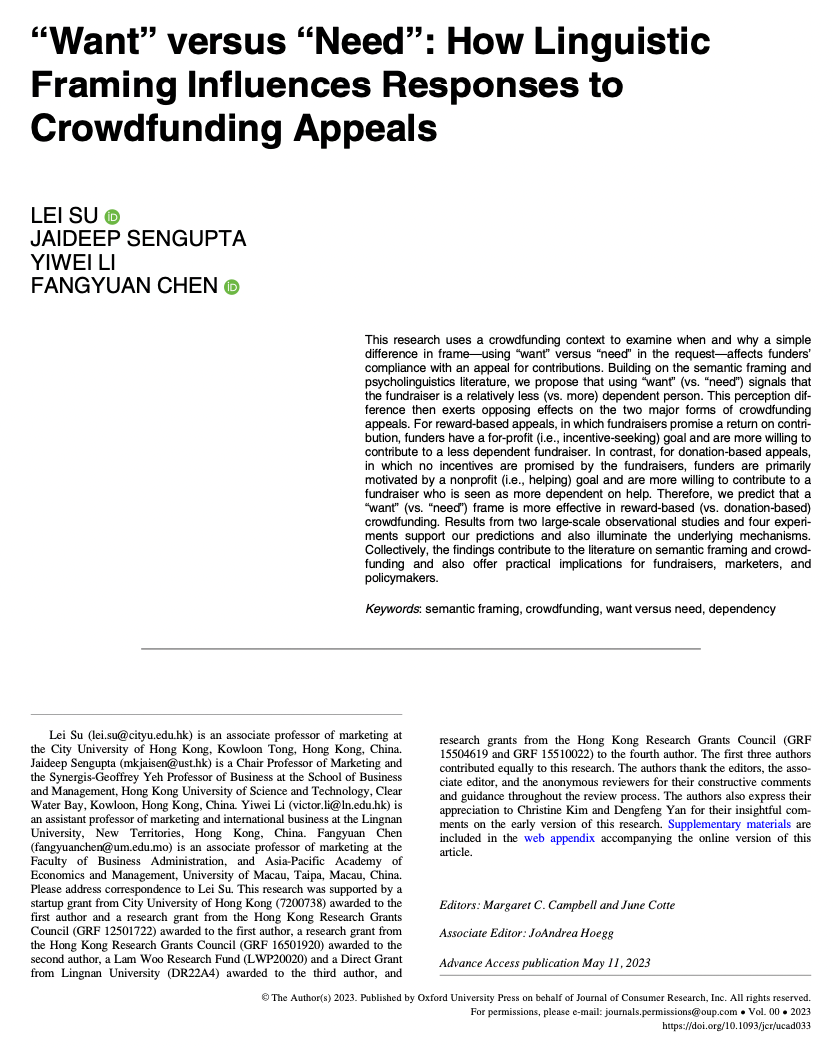The rise of digital media has made crowdfunding a convenient way to seek financial support. However, it is important to carefully consider the language used in crowdfunding requests. Using the wrong wording may have the opposite effect, which leaves fundraisers with a practical question: Do crowdfunding campaigns see different outcomes of donors’ behavior depending on the wording they use? New research by Lei Su of the City University of Hong Kong, Jaideep Sengupta of HKUST Business School, Dr. Yiwei (Victor) Li of Lingnan University, and Fangyuan Chen from Department of Management and Marketing of the University of Macau shows that the language in crowdfunding appeals—“needing help” or “wanting help”—impacts the success of campaigns.
Data collected from two major crowdfunding platforms, Kickstarter and GoFundMe, along with three controlled experiments examined the relationship between phrasing (“wanting help” versus “needing help”) and appeal type (reward-based versus donation-based) on funding intention. The researchers found that in profit-oriented / reward-based crowdfunding campaigns, “wanting help” showed greater independence and competence of the fundraiser, which then triggered donors’ willingness to support more than “needing help”. By contrast, in altruism-oriented / donation-based crowdfunding campaigns, the word “need” implies a greater sense of dependence of the fundraiser, triggering donors’ compassion and showing effectiveness in a higher amount for donation-based campaigns. These findings provide insights on how to make crowdfunding more effective.
The research has been published in Journal of Consumer Research (UTD24, ABS4*) and featured in the Stanford Social Innovation Review, highlighting the practical implications of their findings in the realm of crowdfunding.





